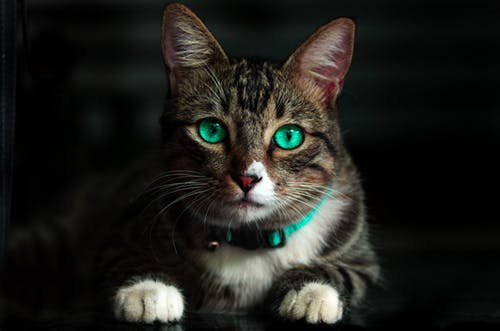
Pet Dental Care: Facts versus Myths
In terms of your dog’s overall health, dental cleaning is just as vital as a healthy diet and regular visits to the vet. According to experts, many dogs exhibit periodontal disease before they age three. The infected tissues that hold the teeth in place are called periodontal diseases. Oral issues can lead to tooth loss and heart, kidney, or lung problems as your dog ages.
It’s a fact that all dogs smell foul, so owners tend to overlook the first indicator of periodontal disease. This is their pet’s smell. Maintaining your dog’s dental and gums in good condition is crucial for preventing periodontal diseases.
Correcting Myths on Pet Dental Health
When it comes to our dogs’ dental health, it’s a topic that often confuses people. There is a lot of false information about the best ways to take care of your pet’s teeth. This article will debunk some of the most common misconceptions about dental health for pets by sharing the truth.
1. Bad teeth only cause bad breath.
Oral diseases have been linked with various systemic disorders, such as cardiovascular and hepatic disease. The infections could cause heart valve issues and inflammation in the liver. Dental problems affecting diabetic animals may cause difficulty controlling their glucose levels.
To prevent these complications, you must invest in your pet’s oral health. Aside from that, you should also inquire about cat and dog vaccinations and also parasite prevention to optimize your pet’s overall health.
2. Toys and dental chews can be used to replace brushing.
Even though dental chews and toys can help to scrape away some of the plaque that accumulates on your pet’s teeth, They aren’t going to substitute regular brushing with toothpaste made for pets. It is possible to ensure that your pet’s teeth are cleaned by brushing them. Toothpaste is made up of components that aid in the cleansing process.
For pets that aren’t comfortable with a toothbrush in their mouths, applying some pet toothpaste along with some gauze to clean their teeth may take away the bulk of plaque.
3. Dental disease is just an issue for older pets.
According to experts, 80% of dogs and 70% of cats suffer from dental disease before age 3. As a result, frequent dental checkups, cleaning, and professional cleanings should be a part of routine care from an early age. During your pet’s yearly checkup, your veterinarian should examine the mouth and inform you if there’s anything that should be addressed.
It is well-known that genetics play an essential role in dental health; hence even the smallest of animals may be suffering from severe dental problems and need to be checked regularly. For more information about dental health, especially in puppies and elderly dogs, you can check the websites of reputable veterinary dentists or visit them in their physical office.
4. Bones are beneficial for my pet’s teeth.
Bones, antlers, and rawhide aren’t all great for your pet’s teeth, contrary to what you might think. Antlers and bone, which are especially hard, could cause your pet’s teeth to fracture or crack, even though any form of chewing could aid in scraping away plaque. It can happen to any dog. However, puppies and older dogs are particularly at risk as their teeth aren’t as sturdy.
Your pet may choke on rawhide, antlers, or even tiny pieces of bone falling off while chewing. Intestinal punctures or stomach ulcers created by swallowing a sharp object could lead to death.
5. A dental cleaning that isn’t anesthesia-free is good for my pet.
It’s considerably more harmful to pets to have dental treatments without it. Fear and squirming are unavoidable if your pet isn’t treated with an anesthetic before the procedure. Any movement, however minor, could result in severe harm or discomfort during the process.
Before you undergo the procedure, your veterinarian will run a series of tests to ensure that your pet is a safe candidate for anesthesia. The vet will inform you that they think anesthesia could be unfit for your pet and will suggest an alternative. For any inquiries about anesthesia, dental procedures, or other surgical operations, you may check this website or visit a veterinary hospital near you.

